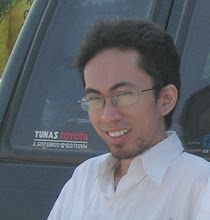Traditional Conservation of The Yawa Tribe
Traditional Conservation of The Yawa Tribe
Yapen Tengah Nature Reserve Irian Jaya
In Irian Jaya, almost every tribe has its own traditional laws and customs which help it protect the use of natural resources. Some of these tribal laws or custom regulate access and use of common land, water, the forest and holy places. Sanctions for violation of tribal law are usually also part of these tribal customs.
One of the tribes in Irian Jaya which has such customs and laws in place is Yawa Tribe. The Yawa tribe mainly consists of people living in the two villages of Ambidiru and Mambo within the Yapen Tengah Nature Reserve on Yapen Island off the north coast of Irian Jaya. This tribe is considered to be one of the first group to inhabit the island.
The Yawa Tribe has known about the need to protect nature and manage the use of natural resources for generations. They still abide by these precepts today and put them into practice in their daily life. Their traditional law and customs are primarily connected with the use and protection of natural resources, such as water sources, birds, sacred forest, certain plants (including medicinal plants) and land.
Traditional Medicine
The Yawa Tribe uses certain leaves and tree as one of their traditional medicine to cure headaches, to stop bleeding from wounds and to regulate female fertility. The taput leaf is used to stop light bleeding. If the patient is severely injured, the wound will be covered with special leaves. The rokdop leaf and koi leaf are blended with water and drunk as cure for malaria, that become secret leaf for the Yawa Tribe's traditional medicine.
The Yawa Tribe also uses bark to prevent or promote conception. If a husband and wife want to prevent conception, the wife has to drink a preparation made from a certain tree bark. Ont the other hand, if the husband and wife are trying to have a child, the wife will drink a different preparation,
Protecting The Water Supply
People of the Yawa tribe place a wooden cross near a water source as a sign indicating that the trees nearby should not be cut down. They are aware of the fact that any disturbance to the forest area surrounding a water source can also disturb the water source itself, another way protecting the water supply with unique concept. This wooden sign is also used by farm owners and mark off fruit trees.
Protecting The Bird of Paradise
The Yawa Tribe's system for organizing hunting of the Bird of Paradise is based on clans, or karet. The Rawai clan, for example, may not hunt the Bird of Paradise within the territory of the Krubaba clan. If a member of one clan transgresses another clan's territory, he must replace the Bird of Paradise he caught with one of equally large and equally beautiful.
Protecting Other Birds
The Yawa tribal custom also protects the wattled brush turkey and the brown-collared brush turkey. These two birds are called Ajinda int the local language. Every clan may collect the eggs of these birds only within its own territory. In Addition, if someone from the Rawai or Pai clan finds Ajinda eggs near where he lives, he will share the eggs with other members of the clan.
Protecting sacred places
A mountain, known in the local language as Gunung Rawai, located to the east of Ambidiru village is considered to be holy to the Rawai clan as it is the place where their ancestors lived. For these reason, there is a prohibition against cutting down trees in this area. There are some other special places as well, such as Paputum, Geyen and Marandoa, where tree feeling is not allowed and which cannot be used for farming because they are considered to be holy places. People in the Yawa Tribe believe that sickness or misfortune will be fall them it they use these places for farming or cut down the trees.
Protecting The Clan Forest
People in the Yawa Tribe, may not cut down trees indiscriminately and the forest is divided up between clan based on the traditional law. If somebody wants to cut down trees in the area belonging to his clan to build house. For example, he must ask permission from the clan leader first and the issue must then also be discussed among the clan. If a member of one clan wishes to cut down trees in an are of the forests "owned" by another clan, he must get permission from that clan.
Protecting trees
The people know that certain protecting trees help fertilized the soil. Leaves of the salawaku and banyan are used as fertilizer. Leaves from the salawaku free are also used to protect coffee plants. A type of wild grass, known locally as insyumai, is also used to fertilizer crops. The flowering part of this grass is yellow and its leaves form a small circle.
What we can learn
If we look at the traditional laws and customs of the Yawa Tribe, and at their prudent and effective protection. and used of natural resources, we should recognize that more research about local people, and their concepts of conservation, is needed in order to help with the management of protected areas.
Local customs and tradition, such as those of the Yawa Tribe, should be adapted and used for managing conservation areas. If the customs and laws of the people living near and within protected areas are integrated into a conversion area's management plan, it shows an understanding and a respect for their traditions and their culture and relates to our hope that a conservation are really can be supported and respected by the local people. Without the support of local people, any system of management for a conservation are will make very slow progress and will not have much success. (John A. Maturbongs)





0 comments:
Post a Comment